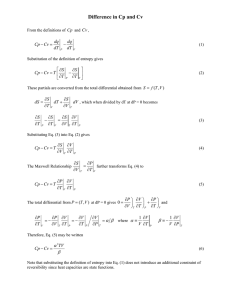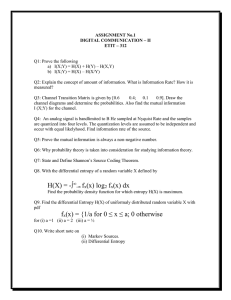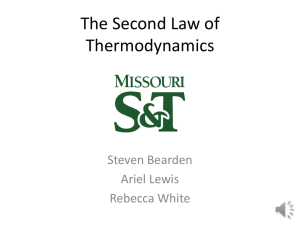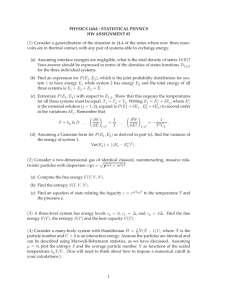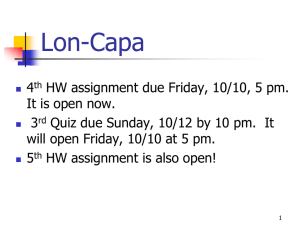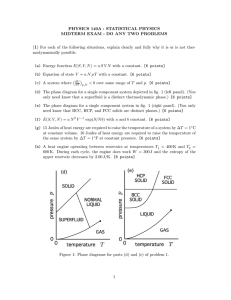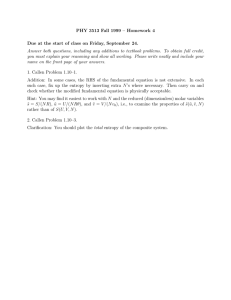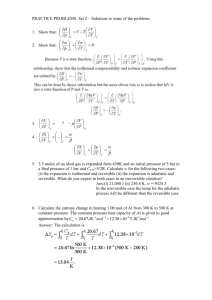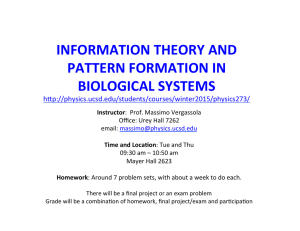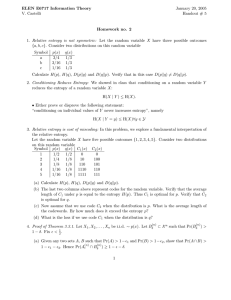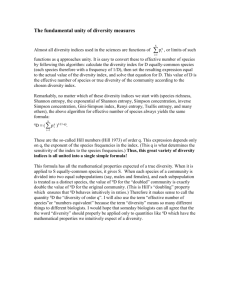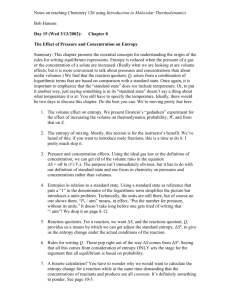Second hour exam
advertisement
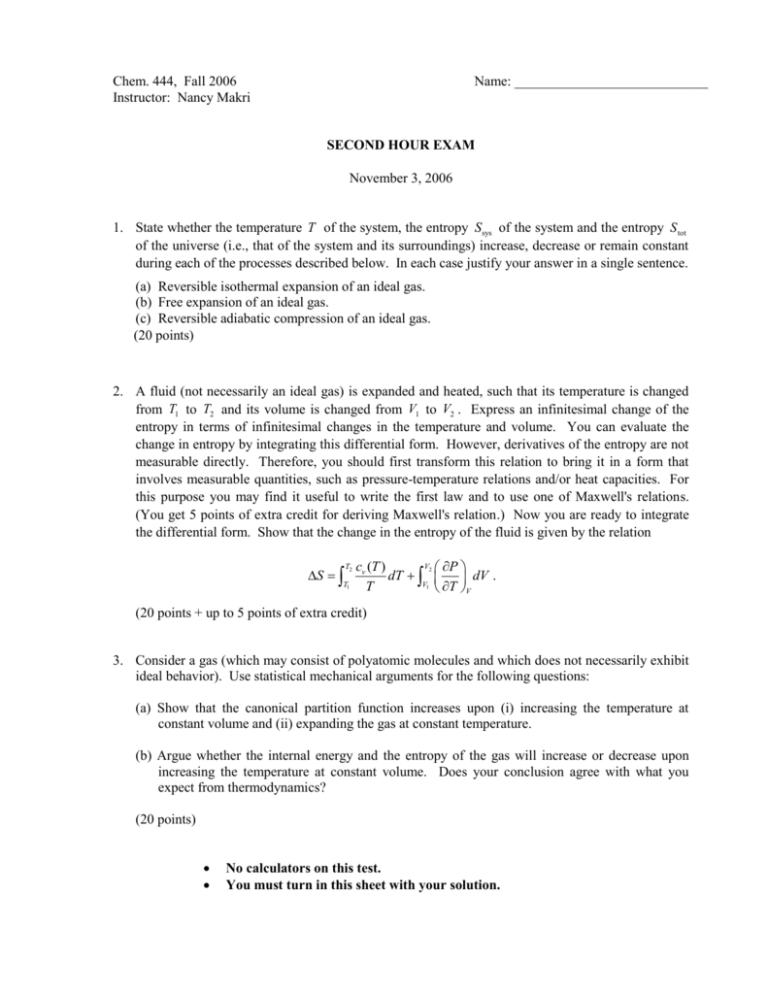
Chem. 444, Fall 2006 Instructor: Nancy Makri Name: ____________________________ SECOND HOUR EXAM November 3, 2006 1. State whether the temperature T of the system, the entropy Ssys of the system and the entropy S tot of the universe (i.e., that of the system and its surroundings) increase, decrease or remain constant during each of the processes described below. In each case justify your answer in a single sentence. (a) Reversible isothermal expansion of an ideal gas. (b) Free expansion of an ideal gas. (c) Reversible adiabatic compression of an ideal gas. (20 points) 2. A fluid (not necessarily an ideal gas) is expanded and heated, such that its temperature is changed from T1 to T2 and its volume is changed from V1 to V2 . Express an infinitesimal change of the entropy in terms of infinitesimal changes in the temperature and volume. You can evaluate the change in entropy by integrating this differential form. However, derivatives of the entropy are not measurable directly. Therefore, you should first transform this relation to bring it in a form that involves measurable quantities, such as pressure-temperature relations and/or heat capacities. For this purpose you may find it useful to write the first law and to use one of Maxwell's relations. (You get 5 points of extra credit for deriving Maxwell's relation.) Now you are ready to integrate the differential form. Show that the change in the entropy of the fluid is given by the relation S T2 T1 V2 P cv (T ) dT dV . V1 T T V (20 points + up to 5 points of extra credit) 3. Consider a gas (which may consist of polyatomic molecules and which does not necessarily exhibit ideal behavior). Use statistical mechanical arguments for the following questions: (a) Show that the canonical partition function increases upon (i) increasing the temperature at constant volume and (ii) expanding the gas at constant temperature. (b) Argue whether the internal energy and the entropy of the gas will increase or decrease upon increasing the temperature at constant volume. Does your conclusion agree with what you expect from thermodynamics? (20 points) No calculators on this test. You must turn in this sheet with your solution.
